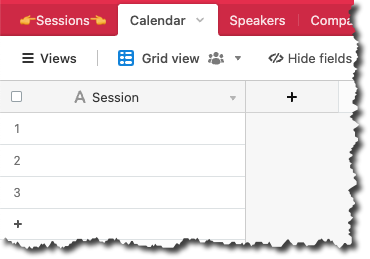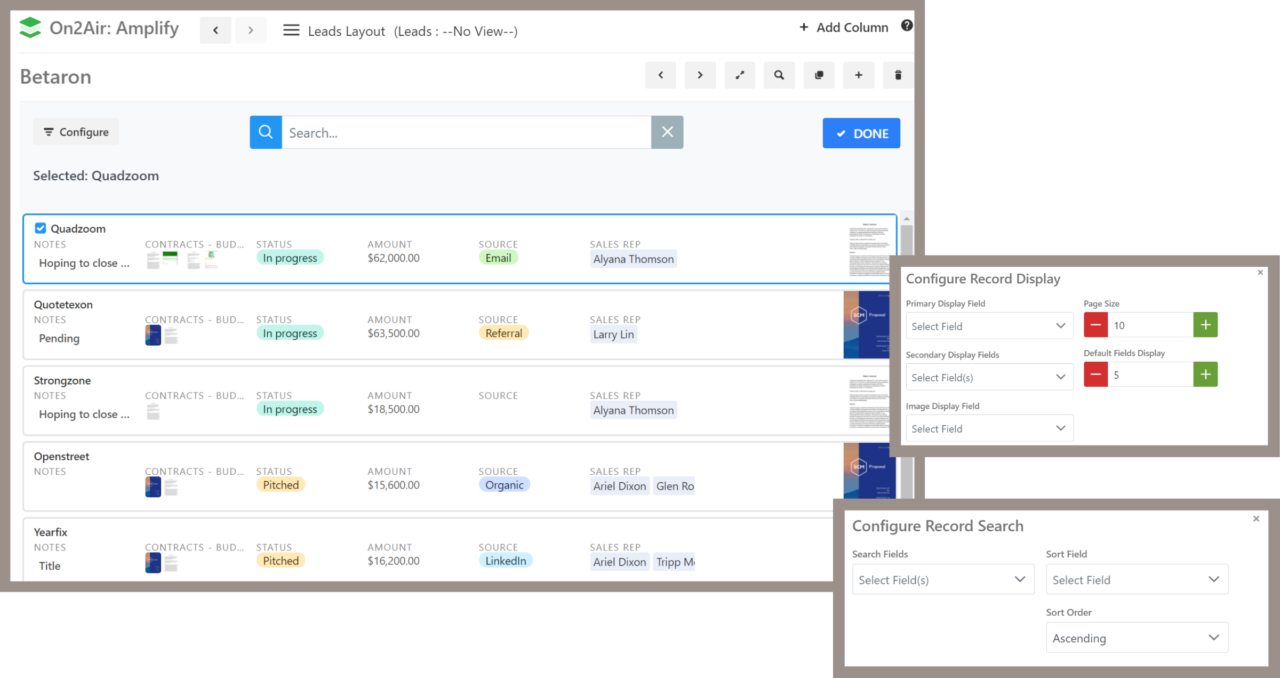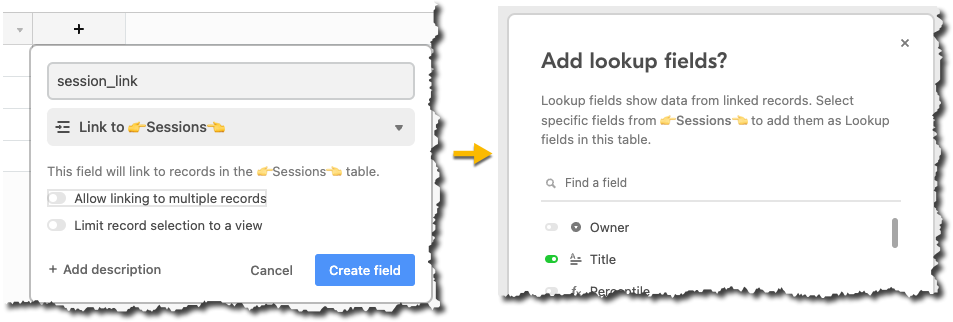

- AIRTABLE CHANGE PRIMARY FIELD HOW TO
- AIRTABLE CHANGE PRIMARY FIELD UPDATE
- AIRTABLE CHANGE PRIMARY FIELD SOFTWARE
- AIRTABLE CHANGE PRIMARY FIELD TRIAL
For example, say you use Stacker to build a CRM on top of your Airtable base.
AIRTABLE CHANGE PRIMARY FIELD UPDATE
Plus, any changes you make on the front end are automatically reflected on the back end, so you only need to update one tool. When you sync these data sources, Stacker immediately builds a workable app with your data. Sync Stacker to your Airtable base(s) and Google Sheets data.When it comes to building a CRM with Stacker, the process starts off similarly to Airtable: You need to select where the data for your CRM will live. And unlike just using Airtable’s CRM interface, you have much more control over how your team (and external users) interact with your data. Stacker is our tool that lets you create all sorts of useful apps (including CRMs), powered by your data - all without writing a single line of code.
AIRTABLE CHANGE PRIMARY FIELD HOW TO
How to Use Stacker to Build a CRM with Granular Permissions and a Fully Customizable UI In the next sections, we’ll show you how to overcome this issue, while still having a customizable CRM that’s powered by your Airtable data. The layout is limited to the column and rows look that can be seen as messy and cluttered. And, further, using Airtable as a CRM isn’t the most user-friendly experience. However, the limited permission settings on Airtable pose a big problem when you don’t want to share all the data in your CRM with each collaborator.įor instance, with this Airtable CRM setup, you have no way of sharing only certain tables or fields with someone, without giving them access to the entire CRM.
AIRTABLE CHANGE PRIMARY FIELD SOFTWARE
Additionally, Airtable’s integrations and API allow you to connect to third-party CRM software tools, send data between them and your Airtable CRM, set up automations, and trigger notifications in apps like Slack and Microsoft Teams. Then, choose which records and fields should appear in this view and how they’re organized.Īs you can see, Airtable can be used as a versatile CRM that serves all kinds of use cases. From here, you can select whether the view should be collaborative, personal, or locked. To create a new view, click on one of the options in the bottom left (Grid, Form, Calendar, etc). This makes it easy to see where each customer is in the sales process, without getting distracted by irrelevant data. For example, Airtable's CRM template comes with four tables: Opportunities, Interactions, Accounts, and Contacts - and you can add others, like Projects, Services, or anything else that’s relevant to your business. However, all the customizations we’ll show are available regardless of if you use a template or start from scratch.Īfter you select the template, you’ll need to add your CRM data and organize it in tables.

AIRTABLE CHANGE PRIMARY FIELD TRIAL
Note: Sign up for Stacker’s free 30-day trial and follow along to build your CRM today. Then, we'll show you how you can use Stacker (our no-code web app builder) to build a fully customizable CRM, powered by your Airtable data, with granular permissions at the table, record, and field levels and an easier-to-navigate layout. To show you what we mean, we're going to walk you through the process of building and customizing a CRM using Airtable's template.

This is a big problem when you want some users to only access certain parts of your CRM. your CRM data) can see all the tables, records, or fields within it. Everyone who has access to your Airtable base (i.e. However, if you try to use Airtable as a CRM, you will come across a serious limitation - it’s not possible to limit which parts of the data your CRM collaborators can see. Starting without a template and building your CRM from the ground up in Airtable.Choosing a template created by members of the Airtable Universe community.You can build a custom Airtable CRM for your business by:


 0 kommentar(er)
0 kommentar(er)
